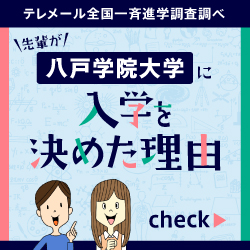Faculty of Regional Management
Philosophy, Purpose, Educational Objectives, Policy

Educational Philosophy
Fulfilling the management of companies, local governments, and society by nurturing human resources that can change the current state of the local area and help it to exceed.
Purpose
Learn the fundamentals of the academic system of social sciences, including business administration, and engage in business in areas such as local companies, local governments, society, and to cultivate human resources who can apply their knowledge and skills to the region and the world.
Educational Objectives
- To engage in management in all areas of the community, through basic learning at the faculty of regional management and to learn the fundamentals of an empowered local society.
- Through participation in regional and field work, acquire the aggressiveness necessary to engage in management.
Three Policies
Diploma Policy (Graduation Certification / Degree Award Presentation Policy)
- Learning through “Reading, Writing, Listening, Talking, Using IT” in order to acquire the basic attitude to acquire academic knowledge, deepening cultural knowledge, acquiring the foundation of regional business science.
- To have general-purpose capabilities for management in all areas of the region; to acquire the ability to explore and respond to issues based on the future goals.
- Through regional activities, field work, international exchange, etc., students understand the current state and problems of local industrial structure and local industries and acquire the necessary behavior and communication skills for regional management.
Curriculum Policy (Curriculum Development and Implementation Policy)
- In order to cultivate basic attitude to acquire academia (Reading, Writing, Listening, Talking, Using IT), basic exercises, presentations, Japanese literacy, information processing, foundational learning is arranged in the first year. After the second year, depending on future career and area students want to learn, specialized research exercises are arranged to cultivate the basic abilities of business studies such as management, accounting, information, and commerce. Also, career design for each grade is provided so that students can think independently about their future.
- “Regional Management Area” to learn about regional management based on business administration, economics, law and sociology, aiming to train human resources with general-purpose capabilities involved in management in all areas of the community. In order to engage in regional management, two areas are allocated: “Accounting / Information Area” aims for the acquisition of a certificate of teaching business of information and bookkeeping / information-related qualifications.
- In order to cultivate empowerment for practice in society, compulsory subjects which are essential subjects of each social science is necessary for learning regional management. Basic subjects follow compulsory subjects, compulsory courses. Students select specialized subjects that further enhance their expertise, taking into consideration the order of subjects. Also, students arrange regional revitalization system theories and regional innovation management and conduct regional activities and field work so that they can understand the current state of industrial structure and local industry in the region. In addition, international exchange of students is promoted by full study abroad programs as well as short-term study abroad programs.
Admission Policy
With regard to various management methods within a community, students having a strong interest and learning motivation to learn independently with the will to discover and examine problems about the community. We accept students who can find practical solutions to local problems.
[Specific Acceptance policy of the Department of Regional Management]
- The student is willing to learn autonomously with strong interest regarding various management concerns in the community.
- The student is willing to actively address real issues of the local community for the future.
- The student has basic communication skills such as ‘reading ability’ to read basic and specialized materials as well as an ‘expressive ability’ to properly express understanding and thought casually and through formal presentations.
- The student has acquired sufficient basic academic skills of “Japanese”, “Mathematics”, “Foreign Language (English)” at high school, “World History A” or “World History B”, “Contemporary Society” or “Ethics”, “Politics and Economy” , “Information Study for Participating Community” or “Information Study by Scientific Approach”.
【Method of judgment in Enrollment Selection】
- Regarding various management styles concerning the community and having the willingness to learn autonomously with a strong interest is judged by written examination and interview.
- Having a strong motivation to actively tackle the actual issues of the community by themselves is judged by written examination and interview.
- To have basic communication skills such as “reading comprehension ability” and “expressive ability” are judged by written examination, interview or essay.
- The student is judged by written examination on the basic academic skills of “Japanese”, “Mathematics”, “Foreign Language (English)” at high school, “World History A” or “World History B”, “Contemporary Society” or “Ethics”, “Politics and Economy” , “Information Study for Participating Community” or “Information Study by Scientific Approach”.












